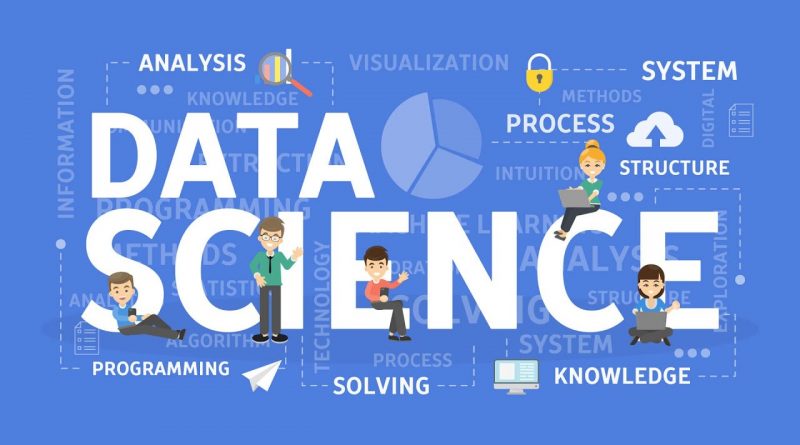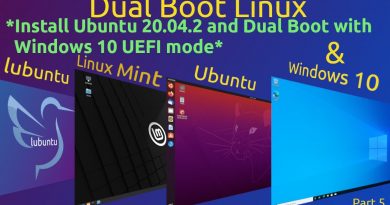Learn Data Science full course for beginners | what's data science | Data science course | Big Data
Learn Data Science is a full tutorial course for absolute beginners. Data science is considered the “sexiest job of the 21st century.” You’ll learn the important elements of data science. You’ll be introduced to the principles, practices, and tools that make data science the powerful medium for critical insight in business and research. You’ll have a solid foundation for future learning and applications in your work. With data science, you can do what you want to do, and do it better. This course covers the foundations of data science, data sourcing, coding, mathematics, and statistics.
⭐️ Course Contents ⭐️
⌨️ Part 1: Data Science: An Introduction: Foundations of Data Science
– Welcome (1.1)
– Demand for Data Science (2.1)
– The Data Science Venn Diagram (2.2)
– The Data Science Pathway (2.3)
– Roles in Data Science (2.4)
– Teams in Data Science (2.5)
– Big Data (3.1)
– Coding (3.2)
– Statistics (3.3)
– Business Intelligence (3.4)
– Do No Harm (4.1)
– Methods Overview (5.1)
– Sourcing Overview (5.2)
– Coding Overview (5.3)
– Math Overview (5.4)
– Statistics Overview (5.5)
– Machine Learning Overview (5.6)
– Interpretability (6.1)
– Actionable Insights (6.2)
– Presentation Graphics (6.3)
– Reproducible Research (6.4)
– Next Steps (7.1)
⌨️ Part 2: Data Sourcing: Foundations of Data Science (1:39:46)
– Welcome (1.1)
– Metrics (2.1)
– Accuracy (2.2)
– Social Context of Measurement (2.3)
– Existing Data (3.1)
– APIs (3.2)
– Scraping (3.3)
– New Data (4.1)
– Interviews (4.2)
– Surveys (4.3)
– Card Sorting (4.4)
– Lab Experiments (4.5)
– A/B Testing (4.6)
– Next Steps (5.1)
⌨️ Part 3: Coding (2:32:42)
– Welcome (1.1)
– Spreadsheets (2.1)
– Tableau Public (2.2)
– SPSS (2.3)
– JASP (2.4)
– Other Software (2.5)
– HTML (3.1)
– XML (3.2)
– JSON (3.3)
– R (4.1)
– Python (4.2)
– SQL (4.3)
– C, C++, & Java (4.4)
– Bash (4.5)
– Regex (5.1)
– Next Steps (6.1)
⌨️ Part 4: Mathematics (4:01:09)
– Welcome (1.1)
– Elementary Algebra (2.1)
– Linear Algebra (2.2)
– Systems of Linear Equations (2.3)
– Calculus (2.4)
– Calculus & Optimization (2.5)
– Big O (3.1)
– Probability (3.2)
⌨️ Part 5: Statistics (4:44:03)
– Welcome (1.1)
– Exploration Overview (2.1)
– Exploratory Graphics (2.2)
– Exploratory Statistics (2.3)
– Descriptive Statistics (2.4)
– Inferential Statistics (3.1)
– Hypothesis Testing (3.2)
– Estimation (3.3)
– Estimators (4.1)
– Measures of Fit (4.2)
– Feature Selection (4.3)
– Problems in Modeling (4.4)
– Model Validation (4.5)
– DIY (4.6)
– Next Step (5.1)
#datascience #machinelearning #python #artificialintelligence #ai #dataanalytics #data #bigdata #deeplearning #programming #datascientist #technology #coding #datavisualization #computerscience #pythonprogramming #analytics #tech #dataanalysis #iot #programmer #statistics #developer #ml #business #java #innovation #coder #dataanalyst #software #database #code #automation #neuralnetworks #businessintelligence #cybersecurity #javascript #bigdataanalytics #robotics #engineering #datasciencetraining #machinelearningalgorithms #softwareengineer #softwaredeveloper #programminglife #science #digitalmarketing #codinglife #covid #cloud #datasecurity #artificialintelligenceai #digitaltransformation #education #tensorflow #linux #cloudcomputing #dataviz #programmingmemes
by svickster
linux foundation



